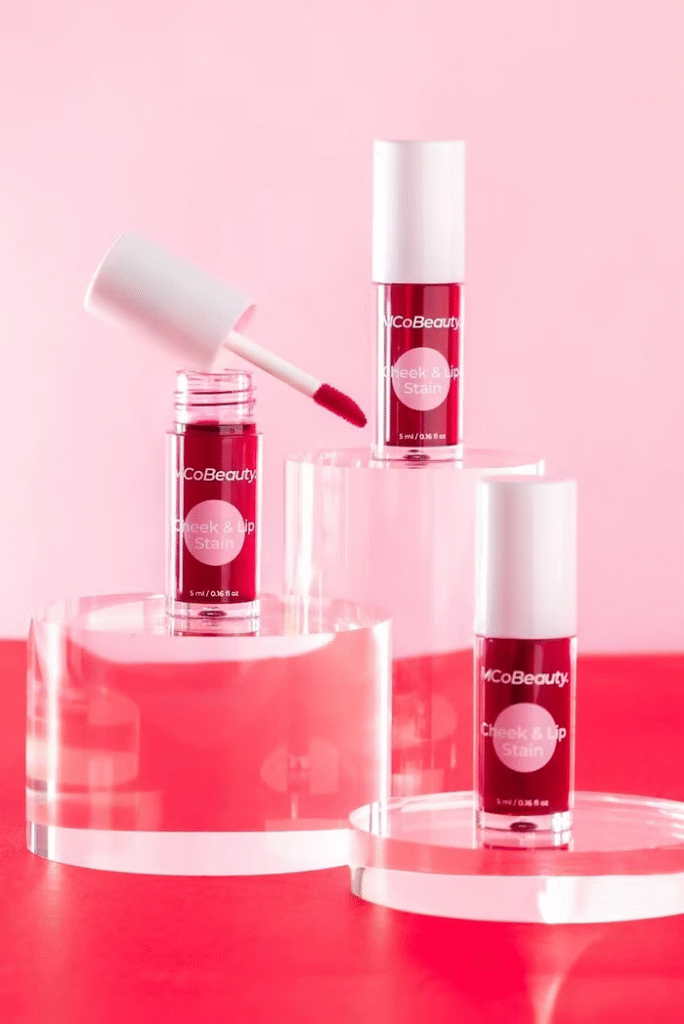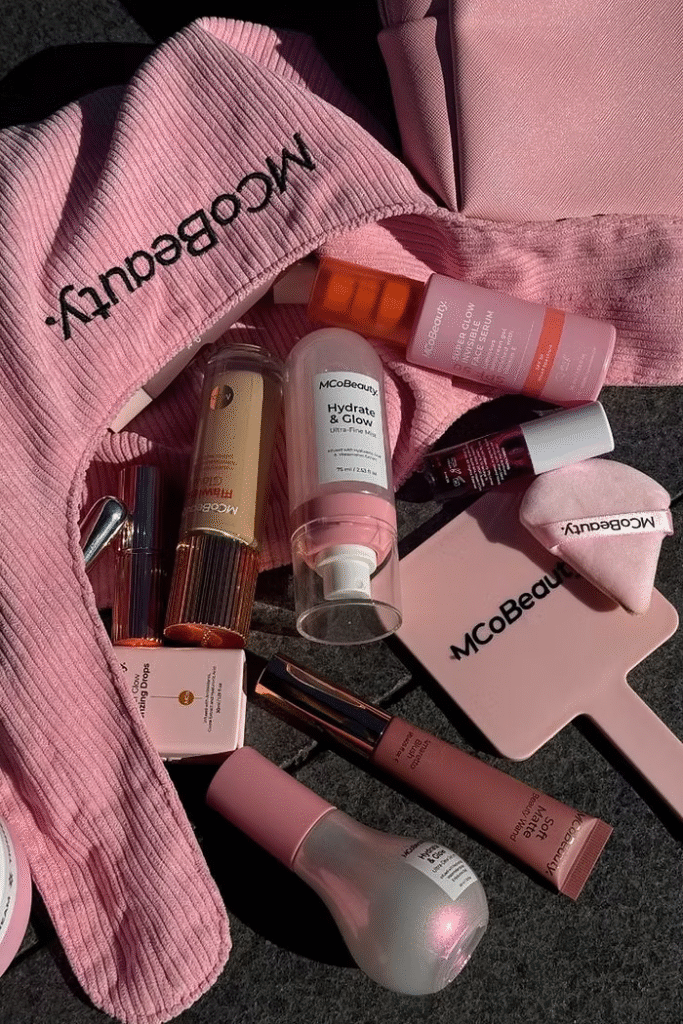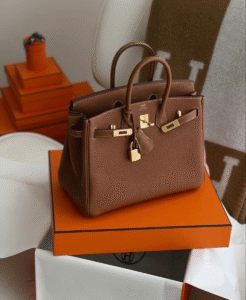The Rise of MCoBeauty: Pioneering the Luxury Dupe Market
The fashion industry flourishes through its high-end, luxurious products, often sold at premium prices. These brands justify their costs by offering superior and premium products and curating unique experiences for their customers. Certain brands weave narratives through their products, while others perpetuate their timeless legacies. However, the industry also has a more sobering side, where certain brands find success by imitating the heritage and experiences of luxury cosmetic brands at much lower prices, frequently leading to legal disputes.

MCoBeauty is one such brand that has prospered by capitalising on the concept of ‘dupes’, a strategy that has led to several legal challenges. Founded by Shelley Sullivan in 2016, MCoBeauty prides itself on offering “luxury for less”, and providing quality products at more accessible price points, as claimed by the founder. The brand’s success is evident as search reports that MCoBeauty is estimated to reach sales of $250 million this year, constituting approximately 5 per cent of Australia’s $5 billion beauty industry. Recently, the brand underwent partial acquisition by the prominent Australian pharmaceutical corporation, Arrotex.
The brand’s first lawsuit occurred in 2021 when the American Brand Tarte instigated the case against MCoBeauty for trademark infringement, alleging that the latter’s “Face Tape” concealer bore a striking resemblance to Tarte’s “Shape Tape” concealer, particularly in the chevron pattern on a reflective gold lid. This case hinted towards MCoBeauty’s tactics of counterfeiting another brand’s product and hence deceiving and misleading the customers, to greater extents.
In its defence, MCoBeauty argued that the two brands target entirely different customer bases. They contended that Tarte’s customers would easily recognize the significant price difference between Tarte’s “Shape Tape” concealer and the more affordable offerings from MCoBeauty, thereby minimising the likelihood of confusion between the products.

Furthermore, MCoBeauty emphasised that the products in question were packaged distinctly and distributed through different retail channels, further minimising potential customer confusion. The case was settled confidentially in September 2021, after which MCoBeauty redesigned its product packaging, replacing the chevron lid design with a pattern featuring its spherical logo.
Later that year, MCoBeauty faced another legal challenge when Chemcorp initiated a lawsuit against the company. Chemcorp markets a diverse range of eyebrow and eyelash products under its trademarked brand, 1000Hour. The 1000Hour brand name, prominently displayed on Chemcorp’s packaging, signifies the natural growth and shedding cycle duration of an eyelash.
MCoBeauty had launched a competing lash and brow dye kit under the name 2000Hours. Chemcorp’s legal claim asserted that the 2000Hours product was “substantially identical and/or deceptively similar” to Chemcorp’s trademarked 1000Hour products, thus infringing upon Chemcorp’s established rights.
In response, MCoBeauty vigorously defended itself against these accusations. The company argued that the 2000Hours product was unlikely to mislead and confuse consumers due to its distinctive branding, which was intentionally designed and crafted to differentiate it from Chemcorp’s offerings. MCoBeauty maintained that the term 2000Hours was used descriptively rather than as a trademark, and therefore does not constitute a violation of Section 29 of the Australian Consumer Law, which addresses the aspect of misleading or deceptive conduct. The legal dispute was ultimately resolved through a confidential out-of-court settlement in September 2021, with MCoBeauty agreeing to rebrand the 2000Hours product and alter its packaging as part of the settlement.
Navigating Legal Challenges: MCoBeauty’s Approach to the Luxury Dupe Business

MCoBeauty’s survival as a brand with a business model of making dupes — lower-priced versions of high-end beauty brands — relies heavily on astute intellectual property lawyering. These strategies include a blend of detailed thorough legal research, strategic and deliberate design alterations, and the use of professional representation. Such practices enable the company to keep its ethos values and regulate with innovation care of consumer challenge balancing act.
MCoBeauty Luxury Dupe Strategies: Legal Compliance and Innovation
Before launching any new product in the market, MCoBeauty conducts exhaustive research on existing trademarks and patents. This process involves reviewing and scrutinising the World Checklist and trademark databases to identify potential red flags. This includes conducting comprehensive trademark clearance searches to ensure that the names and designs of their products or services do not infringe on any existing trademarks. Without this critical step, the company could face costly legal battles, potentially delaying product releases. Beyond trademarks, MCoBeauty also reviews existing product formulation and packaging-related patents. This analysis helps them navigate what is explicitly protected by law as well as which elements are public and may be functionally reproduced or adapted to fit their brand, hence allowing them to navigate the fine line between innovation and infringement.
MCoBeauty also invests in strategic design adjustments to its products to ensure sufficient differentiation from high-end brand products. These changes are carefully made to retain the appeal and functionality of dupes while ensuring legal compliance. For instance, while making a counterpart product for the Hollywood Flawless Filter by Charlotte Tilbury, MCoBeauty altered the structure of the container and replaced the diamond shape on Charlotte Tilbury’s artefact with a circle, thereby avoiding the prospect of trademark infringement.

MCoBeauty ensures it never uses the exact name of any high-end product. Instead, its marketing team selects brand names that are just similar enough to suggest the same connotation as the luxury product but different enough to avoid legal issues. This practice reduces the likelihood of trademark infringement claims. For example, the name used by MCoBeauty may be on the same lines as that used by an expensive brand but different enough to ward off lawyers and potential lawsuits.
Another key factor in MCoBeauty’s success is its willingness to follow the law and adjust its products when needed to avoid legal issues. This approach allows the company to continue developing new products without breaking any regulations. MCoBeauty is responsive to product design changes and Packaging when it encounters lawsuits. Response in the face of disputes not only helps resolve difficult situations but also sets a lead for future product development. Instead of waiting for legal issues to arise, MCoBeauty takes a proactive approach by thoroughly understanding and following intellectual property laws. This reduces the risk of infringement and creates a company culture focused on legal compliance.
The attention to legal compliance at MCoBeauty stretches down to the brand image. With “luxe for less” positioning, the brand communicates value and quality, rather than identity, since it does not speak to high-brow associations as brands at its premium end do. The marketing strategy of MCoBeauty represents value and quality for their products but stays clear of any comparative advertising that may land them in legal hot water. By focusing on the benefits it gives to the product, without making an overt comparison with a luxury brand, MCoBeauty is assured to wrap itself in a legally tenable position. MCoBeauty shares the inspiration behind its products with consumers. Transparency assists in winning consumers’ trust and loyalty and entrenches compliance with the law and ethical dimensions of the business.

MCoBeauty capitalises on its understanding of intellectual property law as a competitive advantage. This allows the company to innovate confidently while staying within the legal limits of the law. Equipped with current and accurate knowledge of the state of IP law, MCoBeauty will remain up-to-date on changes that could affect its business and relentlessly innovate while staying within the bounds of the law. The strategic positioning places MCoBeauty within the beauty market at a vantage point where it’s possible to benefit from demand for affordable luxury without ceding grounds to high-end brands or violating their rights. Their strong legal practices, further underpinning this, ensure a long-term, sustainable model.
Lessons from MCoBeauty: Thriving in the Competitive Luxury Dupe Space
The strategic defence employed by MCoBeauty can be illustrated through the lawsuit filed by Charlotte Tilbury. In the legal battle concerning the alleged infringement of the “Hollywood Flawless Filter” trademark, MCoBeauty’s defence is built around several key arguments that contest the trademark infringement claims.
Common Descriptive Use

MCoBeauty argues that their use of the term “flawless” in the product name “MCoBeauty Flawless Glow” does not infringe on Charlotte Tilbury’s trademark. They assert that “flawless” is a common, descriptive term widely used in the beauty industry to describe the effect of cosmetic products. Because of its generic nature, MCoBeauty contends that “flawless” cannot be exclusively claimed by any single brand, including Charlotte Tilbury. They emphasise that trademarks are designed to protect unique brand identifiers, not commonly used descriptive words, making their use of “flawless” legally permissible and non-infringing.
Distinct Marketplace
MCoBeauty further argues that its product is marketed within a distinct marketplace, implying that the consumer base and commercial context for its products are significantly different from those of Charlotte Tilbury. This distinction reduces the likelihood of consumer confusion, which is a critical factor in trademark infringement cases.
Modification of Protected Elements
MCoBeauty acknowledges that certain design elements, like the diamond motif associated with Charlotte Tilbury’s product, are protected assets. To avoid infringement, MCoBeauty deliberately excluded these protected elements from their product design, ensuring they did not violate any intellectual property rights. By removing or altering potentially infringing elements during the product development process, MCoBeauty has shown a commitment to respecting intellectual property while still offering a competitive product.
Legal Loopholes

The “wonderment test” is used to assess whether a consumer might mistakenly believe that one product is associated with another brand due to substantial similarities. However, this test establishes a high bar for proving brand confusion. Given that MCoBeauty’s branding, retail context, and consumer awareness differentiate its products from high-end brands, it is unlikely that consumers would be confused. Therefore, the claim of substantial similarity does not meet the threshold required by the wonderment test.
MCoBeauty’s success hinges on its proactive approach to legal compliance and strategic adaptation. Before launching products, the company conducts thorough trademark and patent research to avoid infringing on existing IP rights. This rigorous process ensures that product names, designs, and packaging are distinct enough to minimize legal risks. When legal challenges do arise, as seen in cases with Tarte and Chemcorp, MCoBeauty swiftly adapts by redesigning packaging and rebranding products. For instance, after settling with Tarte, the brand altered its chevron lid design to avoid confusion. Similarly, in response to the Chemcorp lawsuit, MCoBeauty rebranded its “2000Hours” product. These adaptations demonstrate MCoBeauty’s commitment to compliance, enabling the brand to thrive while respecting the intellectual property of others.
Advanced legal compliance has allowed MCoBeauty to maintain its core strategy of offering dupes while minimizing legal risks. Through meticulous legal research, strategic design adjustments, and expert legal counsel, the company has built a resilient business model that thrives within a highly regulated environment. This approach not only reduces potential legal challenges but also solidifies MCoBeauty’s position as a leader in the affordable beauty market, demonstrating that innovation and success are achievable while respecting the intellectual property rights of others.








![Demna woke up and chose violence!!!
Gucci Milan Fashion Week Fall 2026, Demna’s debut Runway ✨🙇🏻♀️💋
[Demna, Gucci, Milan Fashion Week, Runway, Fashion, Italy, Let The Raven Talk]](https://lettheraventalk.com/wp-content/plugins/instagram-feed/img/placeholder.png)
